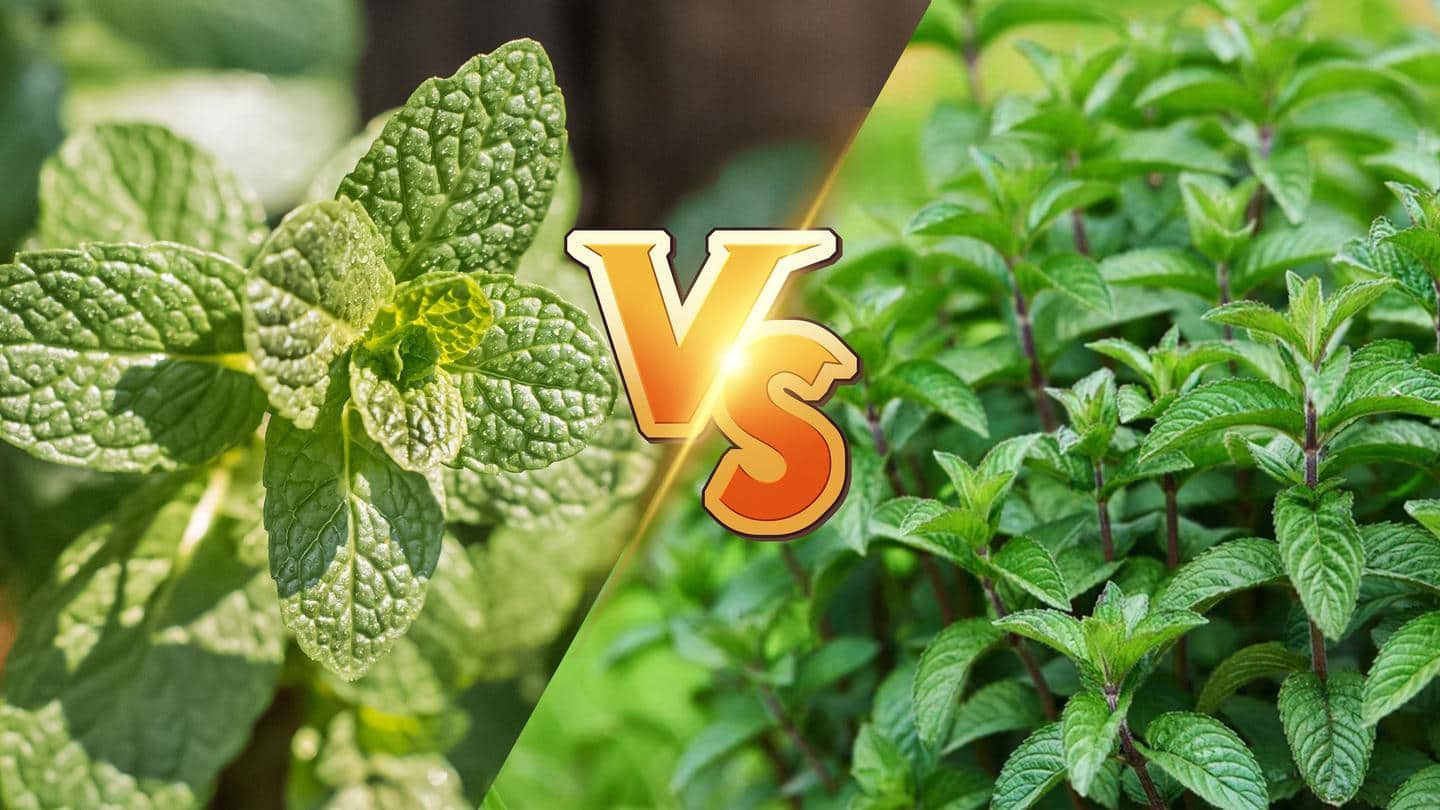
Mint and peppermint: What's the difference?
What's the story
Not everything that looks identical is the same.
Used in innumerable dishes across the world, mint, and peppermint are two herbs that have earned their place in multiple cuisines owing to their freshness, flavor, and aroma.
However, did you know that the two vary from each other on multiple levels?
Here are five differences between mint and peppermint, in case you were unaware.
Basics
Meaning and classifications
The term "mint" in general refers to green aromatic leaves that are used in cooking and medicinal purposes.
It is an umbrella term under which all mentha plants are categorized, covering all the varieties including spearmint, orange mint, peppermint, apple mint, and more.
Peppermint, on the other hand, belongs to the mint family and is a hybrid of water mint and spearmint.
Taste factor
Flavor
Mint has a subtly sweet taste and offers a cooling sensation to the taste buds owing to the presence of menthol.
On the contrary, peppermint has a strong, sweet flavor and odor which is quite warm.
It has got the strongest mint flavor in all the mint varieties as it has the highest concentration of menthol.
It also offers a cooling effect.
Let's 'look' further
Appearance
The stems of both the mint plant and peppermint plant are square and aromatic.
However, the mint plant bears flowers that are usually pale purple, white, or pink.
They are arranged in clusters, either forming whorls or a terminal spikes.
The Peppermint plant has pinkish-lavender flowers that form blunt and oblong clusters.
Additionally, its leaves are darker than those of mint.
Cooking time
Culinary uses
Both mint and peppermint are herbs that are widely used in food across the world. However, the two differ in their culinary uses.
While mint is often used directly in cooking owing to its mild flavor, peppermint isn't added as is.
Instead, it is rather processed in an oil and used as a flavoring agent as it is very high in menthol.
Nutrition
Health benefits
Mint has a high content of antiseptic and antibacterial properties that make it quite useful in relieving indigestion, healing irritable bowel syndrome, and soothing an upset stomach.
On the other hand, peppermint has antiseptic, antimicrobial, antiviral, antioxidant, anti-tumor, and anti-inflammatory compounds.
This makes it a natural pain killer and helpful in treating colds, sore throats, and multiple respiratory problems.